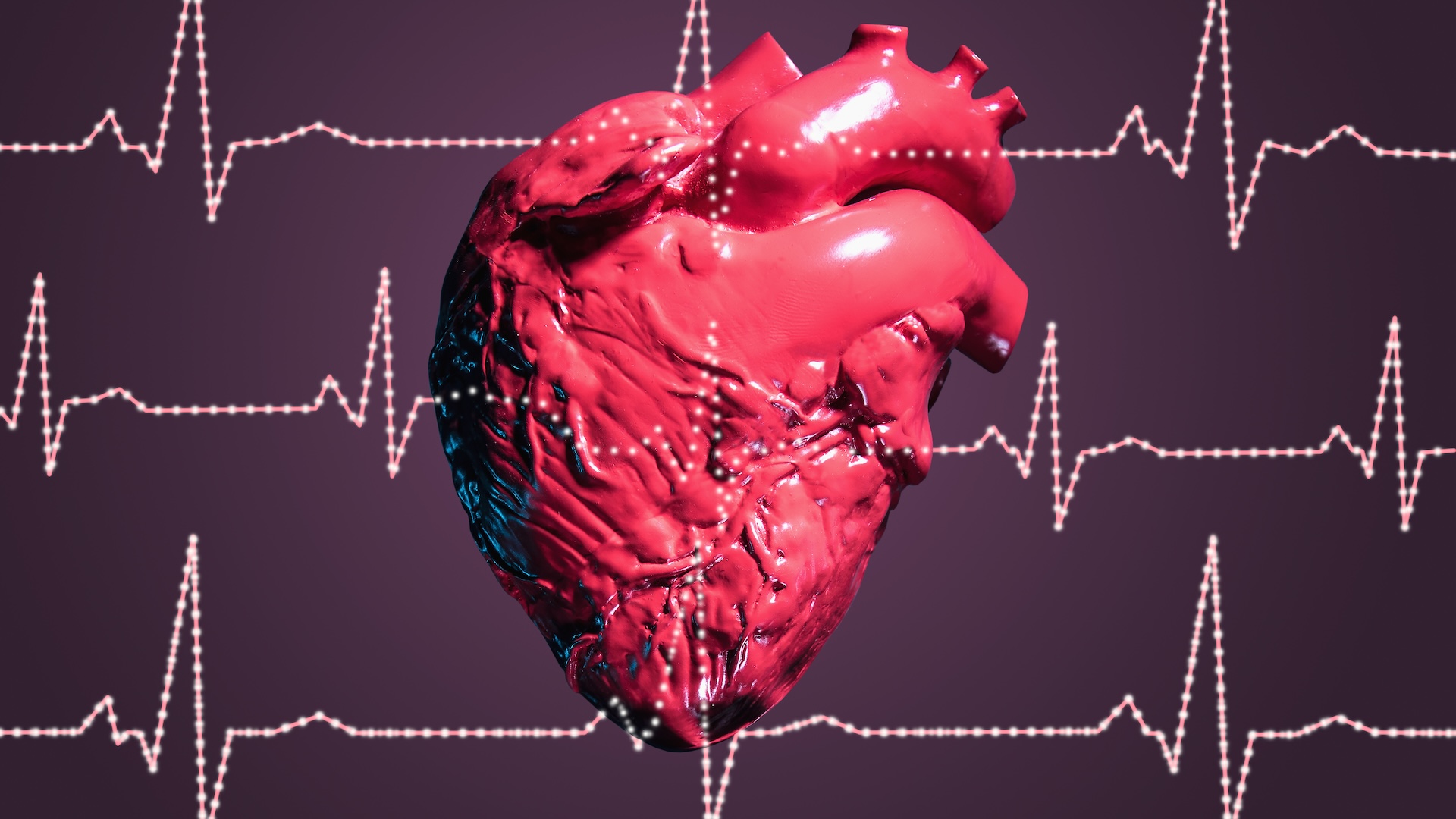
More than any other organ in the body, the heart inspires the imagination. Throughout human history, people around the world have written, spoken and sung about the heart in thousands of languages, describing it as the seat of love, kindness and courage.
But the heart's primary function is to keep us alive. This fist-size muscular organ drives the circulatory system, pumping oxygenated blood throughout the body. It may speed up or slow down depending on our emotions or physical exertion, or due to injury or disease. But in general, a healthy heart thumps steadily and reliably.
So how many heartbeats does that add up to in a single day, or over the course of a human life span?
There's a lot of variation to how fast your heart beats in a day; whether you're sitting at a desk, walking to the store, or running on a treadmill, your heart responds to different energy requirements by beating faster or slower. Heartbeat intervals even slow down and speed up by about 100 milliseconds every time you inhale and exhale, said Dr. Partho Sengupta, chief of cardiovascular medicine for Robert Wood Johnson Medical School at Rutgers University in New Jersey.
"The most interesting aspect of the heart is its ability to modulate its rate and its function depending upon the metabolic needs of the body," he told Live Science. "The physiology is continuously adapting — it almost has its own brain to sense the body's needs."
Estimating a lifetime of heartbeats begins with timing your ticker minute by minute, and then seeing if your average resting heart rate falls within a certain range. Heart rate is measured in beats per minute (BPM). The range for a healthy adult is 60 to 100 BPM while at rest, though the rate for most adults is between 55 and 85 BPM, according to Harvard Medical School. By comparison, the average resting heart rate for a newborn is 70 to 190 beats per minute, per the University of California San Francisco Benioff Children's Hospitals, to meet the energy demands of a faster metabolism.
Related: Can foxgloves really give you a heart attack?
In adults, a resting BPM that falls outside the normal range warns cardiologists of pathologies, Sengupta told Live Science. "We diagnose conditions based upon faster heart rate, when it becomes more than 100, or low heart rate, when it's becoming lower than 60," he said.
A person's heart rate typically slows somewhat with age, as time exacts its toll on heart muscles, said Dr. Salvatore Savona, a specialist in cardiovascular disease and a clinical assistant professor of internal medicine at The Ohio State University Wexner Medical Center in Columbus.
For example, aging can bring the development of fibrosis — growth of excess tissue that impedes beating — or an abnormal heart rhythm like atrial fibrillation, the most common heart rhythm disorder, Savona told Live Science. "That can affect how fast and how slow the heart goes," Savona said.
Listen to your heart
How do heartbeats add up over time? A person with an average resting heart rate of 70 BPM, for example, would generate 100,800 heartbeats in one day. In a year, that would add up to approximately 36.8 million beats. Average life expectancy in the U.S. (as of 2022) is 77.5 years, according to a 2022 report by the Centers for Disease Control and Prevention.
That means in a lifetime, that person's heart beats around 2.85 billion times.
Is there a threshold for how many beats a heart has in it before it wears out and simply stops beating? Or, to paraphrase the Celine Dion song, will your heart go on?
Factors such as age, genetics, injury and disease can gradually erode the heart's performance. But the better we take care of this hardworking organ, the longer and more effectively it will function, said Sengupta.
While aging is a fact of life and all of our body's capabilities diminish over time, "we have an ability to at least reduce the wear and tear that is happening because of stress," he told Live Science.
For example, is restful sleep a priority? How about a healthy diet and regular exercise? "These are questions we need to ask, about how we are responding to our body's needs and are we taking care of ourselves," Sengupta said.







